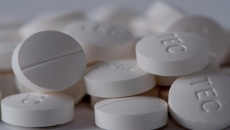"In real world use all four vaccines have been equally effective at reducing the risk of death (100%), serious illness (95%) and hospitalizations (95%). I have no hesitations equally recommending all four vaccines to my patients."
Four vaccines have been approved in Canada - AztraZeneca, Johnson & Johnson, Pfizer & Moderna - how does the approval process work? Can people choose which vaccine they want to take?
When a company wishes to have a medication, including vaccines, be approved for use in Canada, the company has to submit extensive trial data from at least three phases: laboratory, initial and extended human trials. The data must include efficacy data, safety, risk and side effect profiles. The data is then reviewed thoroughly and extensively by a tribunal of Canadian scientists who specialise in the field for which the medication is intended. Once all questions have been answered and the medication or vaccine is deemed to be safe and effective based on a pre-set list of protocols and guidelines, it is then given approval to be used in Canada in treatment of patients at the discretion of Provincial Health Ministries. Of the four COVID19 vaccines approved for use in Canada people do not have a choice on which vaccine they receive. The vaccine available for use is based on actual physical availability, transportation and storage options. The vaccine roll out programs are created by the Provincial Health Ministry based on these complex logistics that are often out of their control. In real world use all four vaccines have been equally effective at reducing the risk of death (100%), serious illness (95%) and hospitalizations (95%). I have no hesitations equally recommending all four vaccines to my patients.
What can we expect in terms of shipment and procurement of the vaccine?
The Canadian Government signed pre-procurement contracts with multiple vaccine manufacturers totaling 100’s of millions of doses while vaccine research was being carried, so that we would have ample access to vaccines once they passed all regulatory and safety checks. Pfizer and Moderna were the first companies to achieve approval status and started to ship vaccine in late December 2020 and early January 2021. AstraZeneca started delivery in March 2021. We do not have a confirmed delivery start date for Johnson & Johnson yet. These companies had initial difficulty in meeting all their production contract commitments, so had to retool their production facilities to meet the worldwide demand. Bad weather across North America during early 2021 also disrupted delivery timetables. Recently the companies have been able to exceed their delivery expectations and Canada is receiving greater than one million vaccine doses per week since March 15, 2021. This is expected to increase in the coming months as all approved manufacturers increase their production capacity further. We will have more than enough vaccine doses to vaccinate everyone across Canada.
How effective is each vaccine and what age groups is it targeting? Should people worry about side effects?
There is a difference between the published trial laboratory efficacy rates and real world effectiveness. Laboratory efficacy rates can be different because they are impacted by who is enrolled in the study, the size of the study group and what end points the scientists are looking at. Trial data gives a good look at general safety and if we should proceed with use in the public. Real world effectiveness is more important and valuable to us. In real world use all four vaccines have been equally effective at reducing the risk of death (100%), serious illness (95%) and hospitalisations (95%). These are the important end points that we need to avoid with any illness, and in the case of COVID19, avoiding these end points will allow us to safely open up our communities and get life back to normal social routines. Typical side effects seen include injection site pain, tenderness, swelling and redness, as well as general fatigue, headache, muscle pain, joint pain, chills, nausea and fever. These side effects are a sign your immune system is building up a response. They typically resolve within 24-48 hours, and can be reduced with the use of Acetaminophen. More serious side effects are rare, but can include severe allergic reaction to a vaccine component leading to difficulty breathing, swelling of the face and throat, fast heart rate, rash and dizziness. These may happen within 15 minutes of vaccination; hence it is important to stay within medical supervision for 15 minutes immediately after vaccination occurs. All vaccination centres have trained staff available to handle any emergency situations that may arise to ensure patient safety.
There has been a lot of controversy with regards to the AstraZeneca vaccine being linked to blood clots. The latest news is that it is not linked to blood clots. How can people be assured that the AstraZeneca shot is safe?
As people are being vaccinated across the world with all approved vaccines, a lot of data is being collected and monitored. In Europe, it was noticed that in specific regions there was an increase in the incidence of cerebral vein thrombosis (blood clots in the brain) in some patients 14 days after receiving the AstraZeneca vaccine. There were 37 cases in a total of 17 million people vaccinated with the AstraZeneca vaccine in Europe. 20 cases were expected based on the natural incidence of blood clots in the brain in the absence of vaccination. Vaccinations were halted to allow further data analysis to ensure patient safety. The European Medicines Agency (EMA) has declared that there was no clear evidence found of increased risk of blood clots from the vaccine. The EMA advised that there would be ongoing monitoring to further study if there was a link to increased risk of blood clots in people who have pre-existing increased risk of blood clots. In comparison, blood clots occur in one in 20 patients hospitalized with COVID19, and one in 100 patients who have COVID19 but were not hospitalized. It is safe to say that the benefits of the AstraZeneca COVID19 vaccine in protecting people from COVID19 and its complications far outweigh the risks.
How will interactions work with people who are vaccinated and those who aren’t?
After vaccination, we are all advised to continue wearing our masks, maintaining physical distancing and appropriate hand hygiene measures. We are advised to only relax these public health measures with our immediate household members who we know are not infectious. In all other situations we need to follow these measures strictly until everyone is vaccinated. The US CDC has hinted that once the majority of people have been fully vaccinated, then they may be allowed to meet with other fully vaccinated people and not have to wear masks. This is not currently allowed in Canada as per our Public Health guidelines and protocols. It may change in the future.
Do people still need to follow COVID-19 protocol after being vaccinated?
Yes, everyone needs to continue to follow COVID19 protocols until the vast majority of people are vaccinated and the numbers of COVID virus circulating in the community is reduced. We will see a reduction of transmission with increasing vaccinations as the transmission lines are cut. Real world data shows that there is a 90 per cent reduction in transmission in virus after vaccination.
How effective are vaccines against variants?
The various vaccines have varying degrees of effectiveness against the multiple variants. All four approved vaccines have shown to be moderately effective against the variants present in Canada currently. It is a race against time to get more people vaccinated before more variants start to spread or more virulent variants get created, hence the need to continue to follow the Public Health protocols.
Is the vaccine safe for expectant mothers?
The initial vaccine trials did not have any pregnant women in their studies, so we did not have that data before. Current real world data shows that it is safe for expectant mothers to get vaccinated after the end of the first trimester of pregnancy. We now also have data to show that newborn babies born to women who were vaccinated during their pregnancy also have antibodies to fight COVID19 which is great.
Ontario has entered a third wave, should BC be preparing for it as well? How will vaccines play a role in that?
Any jurisdiction that has not respected the ability of the COVID19 virus to spread and has opened up too fast prior to seeing significant reductions in new cases arising has had to deal with an increase in infections. Also, keep in mind that the new variants are at least 60 per cent more transmissible and hence more infectious. Ontario is going into its third wave. We could see the same if we do not follow our Public Health protocols here. We are seeing a gradual creep up in the daily number of positive infections being reported.
Will we ever see a return to normalcy once large groups of people are vaccinated?
Simply, YES! It is a race against time to get more people vaccinated before more virus spreads. In BC, we seem to be ahead of our current age-based vaccination schedule. We will get further ahead as more essential frontline workers get vaccinated in the second stream of vaccination that is starting in parallel with the age-based stream. Go get your teeka! “Teeka laghvao, bimari pajhao!”






